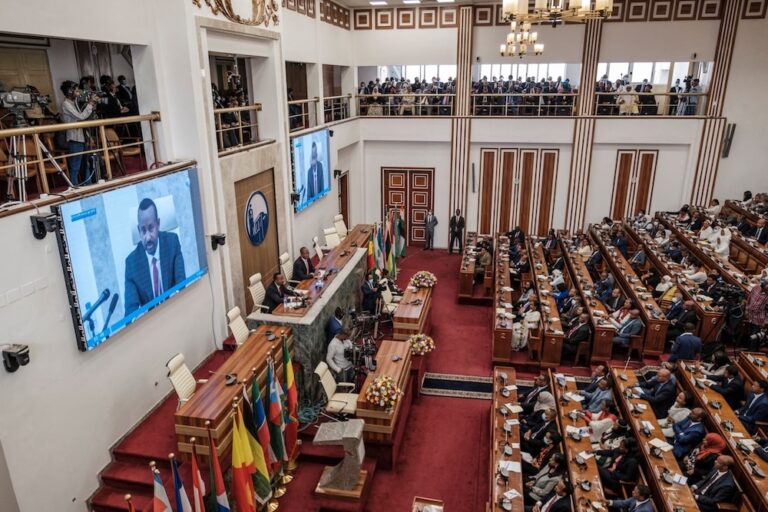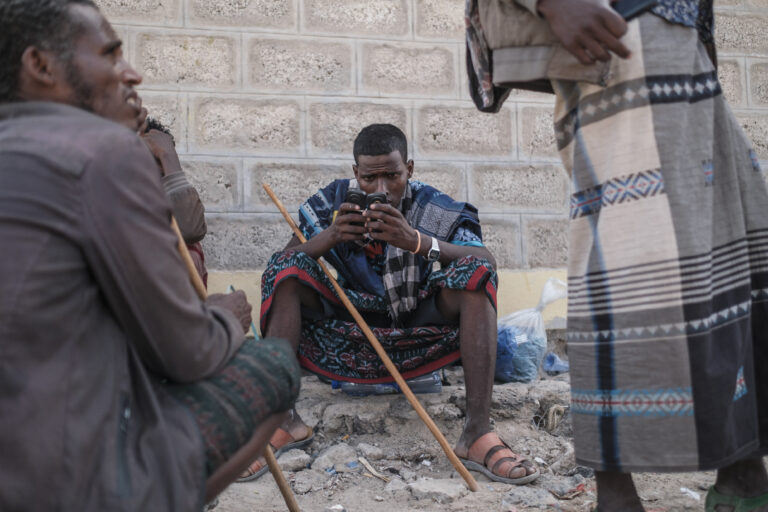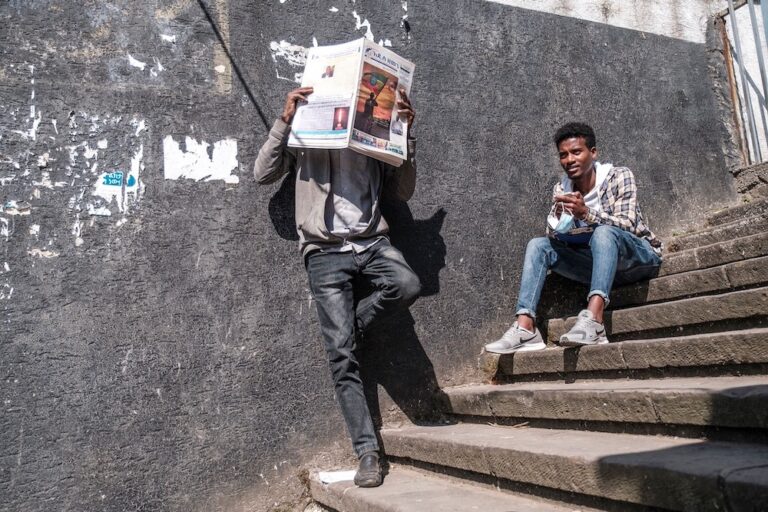(EFJA/IFEX) – The following is a 2 April 2005 EFJA statement: Draft press law co-opts new penal code The controversy over the draft press law took another twist this week (28 March 2005) with the inclusion of some of its punitive provisions in the new Penal Code of the country, which will come into effect […]
(EFJA/IFEX) – The following is a 2 April 2005 EFJA statement:
Draft press law co-opts new penal code
The controversy over the draft press law took another twist this week (28 March 2005) with the inclusion of some of its punitive provisions in the new Penal Code of the country, which will come into effect early next May.
An observer has described the contents of the additions to the Penal Code, which was passed into law by the same parliament last year, as a serious violation of the law, and amounting to an ?ambush? of the entire structure of the legal system.
Deputies who met in parliament for its regular session on Tuesday were asked to pass into law 71 articles as additions to the new Penal Code. These articles included both general provisions applicable to all offences, as well as specific ones applicable to particular crimes. Among these were articles taken verbatim from the draft press law, referring to liability for offences committed by the press. Not informed of this, some of the MPs expressed concern before the House passed the document into law.
One deputy, Marcos Tulle, an MP from the Sidama People Democratic Organization, opposed the inclusion of these articles on the grounds that they impinge on freedom of expression. But his move was thwarted.
The strong opposition to the draft press law, both within Ethiopia and outside, has dissuaded the government from putting it through parliament. President Girma Woldegiorgis, however, said that it will be submitted this Ethiopian year, when he made his speech to the opening and joint session of the two Houses in September last year.
Lawyers approached, and who spoke on condition of anonymity, said that the underhanded manner of introducing elements of the controversial draft into the new penal code undermines the whole structural safety of the legal system and defeats the purpose of having a new penal law.
One prominent legal professional pointed out that the process followed in promulgating these additions to the new law violates the relevant provisions of Proclamation No. 271/2002, the law that governs legislative procedures in parliament.
According to him, this law allows only “rectification of errors of language or otherwise, which in no way affects the substance of the given law” before it is published in the Federal Negarit Gazette; and even when these are deemed to be necessary, the Speaker of the House, who does the correction, must inform the President, whose signature must accompany the law. “These additions, however,” said the lawyer, “are of substance and not technical, and as such constitute a violation of the law on legislative procedure, which is an integral part of the whole structural safety of the country’s legal system.” In addition to this, he also indicates that this change in a law not yet in effect was not initiated by the executive and does not adhere to the usual legislative procedures, including tabling the draft for a number of readings.
Asked about the wholesale inclusion of the provisions of the draft press law into the new penal code, the lawyer admitted that taking these articles from a draft whose legal and constitutional standing is questionable and putting them in the earlier part (Article 43, 44 and 45, namely) of the new code appears to have been aimed at introducing the different and ‘objectionable’ parameters of the draft law into the new law. “The purpose seems to be to introduce the new parameter of the draft law with respect to participation in press offences into the new code,” he added. The draft press law treats everyone, from the writer to the vendor in the streets, as parties to a crime committed via a press product.
Another thing that concerns the lawyer is that this insertion is done verbatim and, thus, the whole presupposition of these articles is also transferred to the new code. “These articles presuppose a gamut of concepts and issues as tackled by the draft press law, such as delegation, the right to engage in press activities, the duty of being licensed, etc.,” he said, “but with this draft yet not passed into law, they are not only out of place in the new code, but they also may rub off some of their draconian nature to it.”
According to the lawyer, the parliamentarians were also duped by the drafters of these additional provisions; he noted that the legal and administrative committees of the House, as well as women and social affairs standing committees, had said that those articles referring to press offences were written by taking the provisions of the current press law into account. “In fact, they were not,” the lawyer stated. “They were taken verbatim from the draft law and this should have been disclosed to the parliamentarians who voted on it.”
These new inclusions appear to have replaced an almost verbatim inheritance of provisions on liability in press offences from the 1957 Penal Code.


